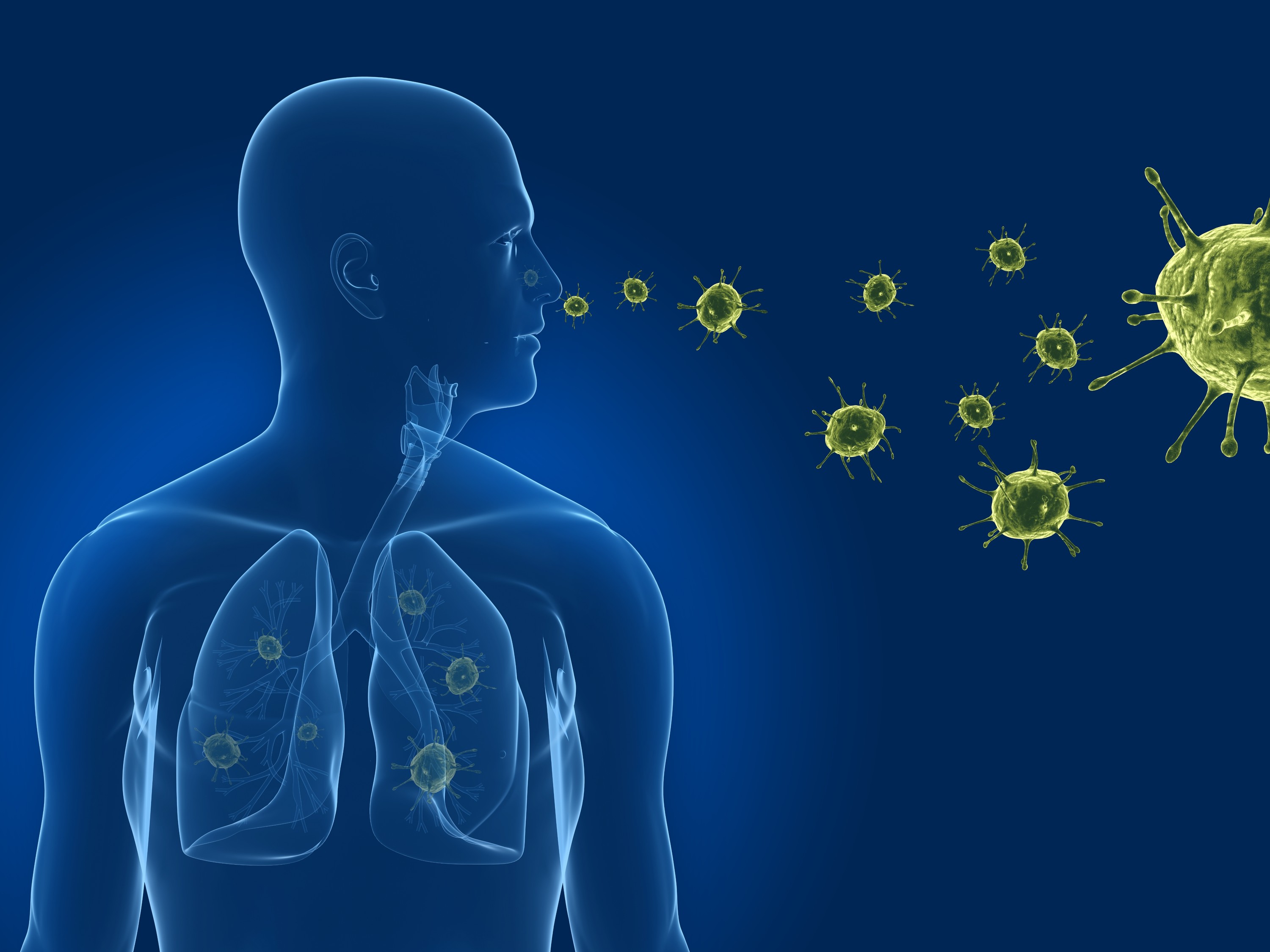The best ways to prevent and heal pneumonia
Many years ago, pneumonia was called “the winter fever,” but today we know much more about this infection that affects one or both air sacs in the lungs. Different organisms including bacteria, viruses and fungi can cause pneumonia. The greatest danger from the disease is usually among the very young and adults 65 and older. Having a clear understanding of pneumonia can help in preventing infection.
The cause
There are many germs that cause pneumonia but the most common are bacteria and viruses that are found in the air that we breathe. Most of the time, the body does a great job of preventing these germs from infecting your lungs. But sometimes, the germs win and the lungs are affected.
There are several types of bacteria that can cause pneumonia but the most common one in the United States is Streptococcus pneumoniae. This infection often follows the cold or the flu and can affect just one part of the lung or both parts. There are other organisms that are similar to bacteria that cause a milder form of pneumonia often called “walking pneumonia” since it is so mild that bed rest is not needed. This form is less contagious but can still be spread.
Viruses that cause the cold and flu can also cause pneumonia. When children who are younger than five have pneumonia, it is usually caused by a virus. In most cases, viral pneumonia is mild but it does need to be treated with care.
There are some types of pneumonia that are caused by fungi. This is most common in people who have chronic health issues or who have been exposed to fungi found in soil or bird droppings.
The signs
Since pneumonia often follows a cold or a flu, it can be hard to identify when pneumonia develops. The symptoms are similar to those experienced with a cold or flu but last longer. Symptoms include chest pain when you cough or breath, fatigue, fever, sweating, chills, nausea and shortness of breath. When it becomes difficult to breath or your chest is sore, it is time to contact your physician. Another danger signal is a fever of 102 or higher that is persistent. People with lung issues or who are younger than 2 or older than 65 should be the most vigilant since pneumonia can quickly become a life-threatening condition for them.
Prevention
Pneumonia caused by bacteria or viruses can be spread from person to person. Fungal bacteria is spread through contact to an environment and is therefore not contagious by person to person. Coming in contact with the bacteria or virus happens in many ways including coughs or sneezes that aren’t covered, sharing drinking cups or eating utensils, touching an item that someone who is infected has used and not washing your hands after blowing your nose, coughing or sneezing. As stated before, many times the body’s immune system is able to prevent the bacteria or viruses from infecting the lungs but is not successful all of the time.
The best defense is getting a vaccine for both the flu and pneumonia. The guidelines for the types and frequency of vaccines is constantly changing so check with your doctor for his or her recommendations.
The next step is to practice good hygiene, especially when you are in public or around people who are ill. Wash your hands regularly or carry an alcohol-based hand sanitizer to use frequently.
Finally, keep your immune system strong. Get sufficient sleep, exercise regularly and eat healthy foods. Take steps to keep stress under control since stress can also weaken your immune system.
A time for extra care
After surgery or a medical event, your immune system is often weaker, which can increase the risk of contracting pneumonia. When you are not feeling well, it can be tempting to stay in bed for long hours and skip meals, which can lower resistance even more. This is why many people wisely choose to stay in a short-term care facility after a hospital stay, especially those recovering from pneumonia.
One of the premier locations for recovery is Whitehall of Deerfield where care is given in both a professional and luxurious manner. The staff at Whitehall of Deerfield understands the important role that respiratory therapy plays in healing pneumonia and is one of the few rehabilitation centers to provide a full-time respiratory therapist. The goal at Whitehall of Deerfield is always to do everything possible to assure a safe and effective recovery. The respiratory therapist works with other therapy and nursing staff to create an individualized strategy to meet each patient’s needs.
In addition to respiratory therapy, Whitehall of Deerfield offers a full array of services and clinical capabilities to help those with pneumonia recover quickly and fully, including chest X-rays, BiPaP/CPAP capabilities, incentive spirometry, oxygen therapy, IV antibiotics, PICC line insertion capability, 24-hour imaging availability and much more.
All this — not to mention Whitehall of Deerfield’s expert physical, occupational and speech therapies — helps patients avoid being re-hospitalized. Working with a multidisciplinary team, therapists provide focused sessions on state-of-the art equipment that help move guests toward their goal of returning to an active lifestyle as quickly and safely as possible. Nutritious meals and a healthy environment also help boost immune systems.
This recovery takes place in a setting that is first class. Guests are offered an array of world-class amenities and choices of cuisine. This emphasis on comfort allows guests to focus on gaining the strength and flexibility to return home to a normal lifestyle.
Whitehall of Deerfield takes pride in offering the care you need with the luxury you expect. To learn more about the many services offered at Whitehall of Deerfield, visit whitehallofdeerfield.com or call 847-729-9090.

